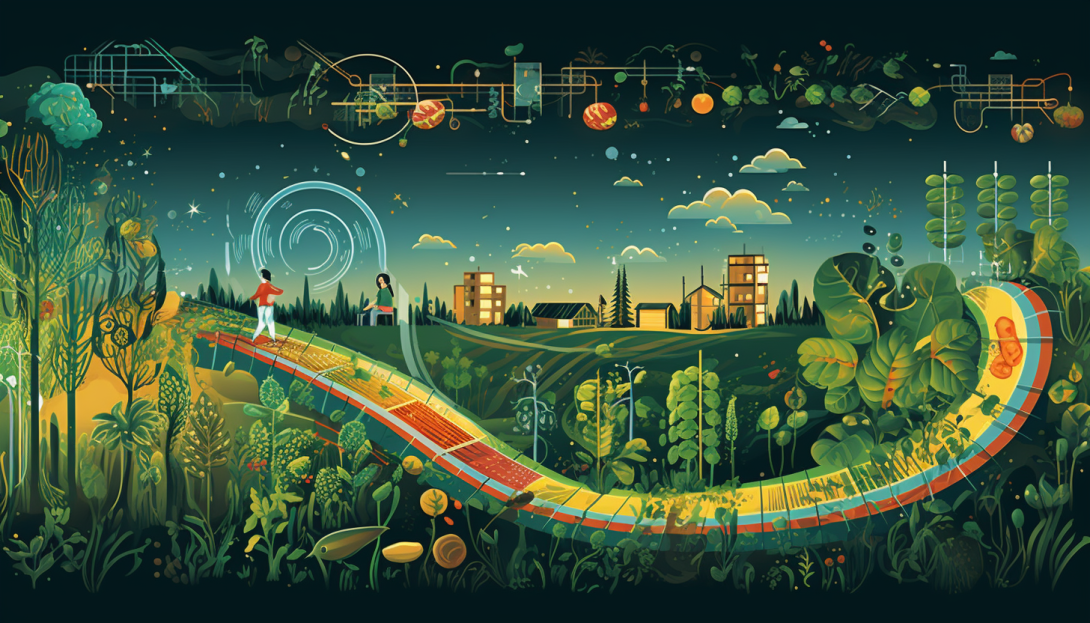Technological Developments of Project ALLIANCE

Introduction
Food fraud poses a significant threat to the integrity of food supply chains, reputation of food business operators, consumer trust, and – potentially – health, and it is particularly prevalent amongst high-value commodities such as extra virgin olive oil. To combat this, ALLIANCE (A hoListic framework in the quality Labelled food supply chain systems' management towards enhanced data Integrity and verAcity, interoperability, traNsparenCy, and tracEability) aims to exploit technology to improve food traceability, safety, and authenticity through greater transparency and efficiency, and better security.
Technologies & Methods
One key technology for ALLIANCE is blockchain. A blockchain is a decentralised, distributed, and public digital ledger (collection of information) that is used to record transactions across many computers. Records cannot be altered across the whole system meaning any amendments will not change all previous or subsequent blocks, allowing attempted fraud – for example – to be identified and consensus of the network maintained. By implementing a blockchain, ALLIANCE aims to provide greater transparency and traceability across food supply chains, making it easier to detect and prevent product specific frauds. Evidencing the integrity of products will help retain consumer trust.
ALLIANCE is also considering the use of artificial intelligence (AI) for early warning and decision support. By leveraging predictive analytics and machine learning, AI can identify vulnerabilities, detect and alert to potential fraud, and support decision-making around measures to prevent fraud or respond effectively. ALLIANCE aims to go beyond the state-of-the-art by integrating multiple data sources and advanced technologies, e.g., internet-of-things (IoT), passive devices that capture information along the food chain, which can be exploited to follow products from manufacture to consumption. This holistic approach will enable better prevention and detection of fraud, which is essential to underpin value and trust as well as delivering transparency.
To achieve these ambitions, ALLIANCE must also address interoperability, the capacity of computer systems or software to exchange and make use of information. INTER-IoT enables manufacturers and retail interact, promoting collaboration and sharing of information, to achieve interoperability. Similarly, this information can also be protected from external interference through blockchain, ensuring greater visibility of food products and transparency of the product (food) chain. More specifically, ALLIANCE aims to establish a food supply chain interoperability management framework to facilitate (seamless) collaboration among actors.
Machine learning (ML) is an essential tool in automating identification of anomalies related to fraud. Algorithms can learn from large volumes of data linked to fraud to identify common features. Subsequently, this knowledge can be applied to unknown datasets from – for example real-time monitoring (e.g., sensors and cameras) and IoT in manufacturing or transport processes – to detect similar patterns that can be investigated. If proven to be indicative of fraud, these test datasets can be added to the learning datasets to refine the algorithms to improve their accuracy.
DNA analysis has roles in everything from paternity testing to selection of the most effective medicines in cancer treatment and is another technology being considered by ALLIANCE. By analysing the genetic makeup of food products and comparing results with a database of known genetic markers, source can be verified (i.e., an oil is only olive oil and not a mixture). To support immediacy in the process, ALLIANCE aims to introduce portable devices with ML and blockchain systems to deliver faster and more accurate monitoring. However, DNA cannot determine if the olive oil is extra virgin or lampante, or from Greece or Spain. Thus, advanced spectroscopy, such as near infrared spectroscopy (NIR) and hyperspectral imaging, will be utilized to safeguard authenticity of these characteristics.
In addition to these technologies, ALLIANCE also wants to focus on development and publication of digital knowledge bases and web-based portals to make data related to the prevention of food fraud FAIRer, i.e., more findable, accessible, interoperable, and re-usable for actors in the food chain and the wider user community, i.e., researchers, policymakers, and consumers. Ultimately, perception and knowledge are vital in shaping behaviour towards food products and the elimination of food fraud. ALLIANCE will use behavioural models, such as the theory of planned behaviour and health belief model, to assess acceptability of – for example – blockchain and understand factors influencing intentions to purchase blockchain-traced products.
Limitations & Challenges
There are, however, limitations and challenges that need to be addressed with any technology, especially in the food sector. Non-technological challenges include disparities in regulations and standards within the supply chain, inconsistent labelling, and lack of validated quality information. These contribute to a lack of trust and hinder the effectiveness of traceability systems. Resource-intensive requirements and scalability of blockchain need to be overcome. Acquisition of high-quality interoperable data from agriculture and food businesses is difficult, especially given the dynamic nature of food chains and the demand for real-time traceability. To address these limitations, ALLIANCE is not only exploring the potential technological solutions described above but also the willingness of stakeholders to share their data, where the benefit for all is a more systematic and transparent approach to food traceability, authenticity and safety.
Conclusion
ALLIANCE will employ a holistic framework and various technologies to enhance food traceability, authenticity, and safety. By addressing the limitations and challenges, ALLIANCE aims to reduce food fraud, increase consumer trust, and support informed decision-making by the industry and policy-makers.